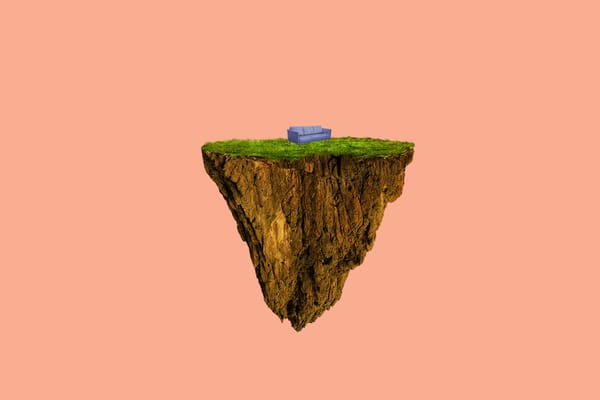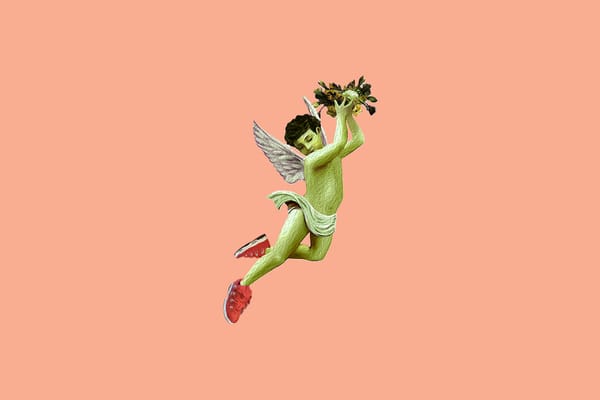What happens after you win?
Olympic street skateboarding champion Yuto Horigome is lost.

Before winning gold at the Men’s street event in skateboarding’s debut at the Tokyo Summer Olympics, a medal he’d subsequently wrap around the neck of his giant Snorlax stuffie with all of the rest; before becoming a celebrity in his home country of Japan, meeting the Prime Minister, signing a partnership deal with… Delta Air Lines, throwing out the first pitch at a Los Angeles Angels game, publishing an autobiography at just 23 years old, and being rushed through multiple lifetimes of experiences in just a dozen or so months; it didn’t look like Yuto Horigome would even make the podium at the 2020 games. He’d struggled in the run section of the contest and left himself in the high-pressure situation of having to land three of his most difficult and high-scoring maneuvers to pull ahead in “best trick.” An improbable feat that he’d accomplish with apparent ease in front of an adoring hometown crowd.
Since his Olympic victory, Horigome has remained that same unreal talent on a skateboard. In 2021, he not only claimed gold but released a pair of video parts that helped put him in contention for Thrasher Magazine’s coveted and increasingly contentious “Skater of The Year” award. While 2022 was comparably slow for Horigome on the competitive circuit, with fewer contest appearances than previous, he still ended the calendar year with wins at two Streat League Skateboarding events, an X Games, and the relatively obscure “Chimera A-Side The Final” contest held at the Saitama Super Arena in Saitama, Japan.
His only significant competitive blemishes in recent years have come in official Paris 2024 Olympic qualifying events. The defending champion failed to crack the top ten in Rome in July of 2022 and Sharjah in February of this year. Horigome only managed to reach 11th place in Italy and took a stunning tumble to 32nd while in the UAE. If there was a sting to that latter performance, it’s not taken much out of him, as he handily won Tampa Pro earlier this month. If anything has affected Horigome, it hasn’t been his stumbles. In a video feature released by his shoe sponsor Nike, Horigome talks at length about feeling adrift after his gold medal win.
“Before the Olympics, I had a lot of self-conviction and a clear vision of what I wanted. Now I’m not really sure what I want to do next. [There are] times when I feel like I’m not really sure who I am. It’s like I’m battling with myself… There [are] a lot of people who give me their opinions, and it’s hard for me to understand which is right or what I should listen to—what I should do from here on out. I’m a bit lost myself.”
The idea that one might feel this way after succeeding on the world’s biggest stage and fulfilling a personal and career achievement that only a scant few in human history have ever done might seem a bit strange from the outside. But it isn’t unusual for Olympians, whether they take home a medal or not, to feel this sense of listlessness and, at times, symptoms of possible mental health issues, such as depression, after the games. It’s so prevalent it even has a name: the “post-Olympics blues.” It’s only been in recent years that athletes have spoken openly spoken about their struggles.
“To put everything into this one competition and then when it’s over, whether it’s good or bad, it’s over and ... there’s just this empty feeling, whether it went well or not,” Stephanie Labbé, the goalkeeper for Canada’s Olympic champion soccer team said when reflecting on the team’s bronze medal-winning performance at the 2016 Olympics in Rio de Janeiro, Brazil.
English swimming champion Adam Peaty told ITV in 2021, “I experienced really bad post-Olympics blues after Rio. I went through that big lull of feeling lost; I didn’t know what to do with myself; I’d achieved my absolute dream, and Rio was the time of my life, but no one prepares you for what happens afterwards. I really believe there is not enough being done for preparing athletes for that feeling. Looking after them not just in the pool and their performance but outside of that, when they’re at home and on their own.”
Peaty’s comments would come years after Michael Phelps, the most winningest Olympian of all time, told NBC in 2016 that after the 2012 London games, he spent “days locked up in my room, not wanting to talk to anybody, not wanting to see anybody, really not wanting to live.” Since then, other high-profile athletes like Olympic gymnast Simone Biles and runner Alexi Pappas have written and spoken extensively about their competition-related mental health struggles. However, it’s still a conversation that never seems to gain traction for long.
All of this can seem like a far cry from the world of skateboarding, where whole swathes of the community dismiss the idea that skateboarding could even be considered a “sport,” let alone an Olympic one. Many prefer to live within the ghost of its countercultural appeal, which, in some respects, is understandable. For years, the archetypal “professional” in skateboarding was the hard-partying daredevil whose fearlessness was lauded almost as much as their disregard for the responsibilities of the job their sponsors paid them to do—a glaring contrast to most Olympic skateboarders who live extremely regimented lives like the high-level professional athletes they are.
The Olympics also offer a level of exposure and opportunity that is difficult for those involved, from athletes to staff, to truly anticipate. The trappings and realities of such a platform come with hazards for the unprepared. We’ve seen this already with USA Skateboarding’s existential struggle to carry itself as a reputable organization and skateboarding’s Olympic governing body’s many self-inflicted controversies. We are now starting to glimpse the effects of what being an Olympian can have on skateboarders.
Team USA’s Jordyn Barratt spoke to ESPN about the experience of training for and competing in the Women’s park event at the Tokyo 2020 games but seemed uncertain of how to categorize the subsequent feelings.
“I think I had a moment of the post-Olympic blues. It's just this feeling of being so crazy and stressed before the Olympics, and I honestly didn't even know how much stress I was putting on myself until after the Olympics. Holy cow, I was so stressed out. Why was I so stressed out?... It's, I think, the pressure from yourself that you put on yourself that affects you. It affects me, at least. It's such a whirlwind before and during and right after. And that, for me, at least, was ... I don't know what's going on next.”
Considering how common post-Olympic blues can be, what is it exactly that causes them and is there anything athletes can do to treat or prepare themselves for it? Dr. Whitney Sedgwick, a sports psychologist at the University of British Columbia’s Counselling Services who’s worked with Canadian national teams and coaches, told me it’s “expected that athletes [along with staff and coaches] will experience a range of emotions post-major event…. The feelings could be more pronounced and last longer if the person did not achieve the performances they had set out to do.”
With the Olympic games only held every four years, the sacrifice required to compete in them is immense. Time, energy, social and romantic lives—all of it can become secondary to sport for however long an athlete competes for. So if that effort doesn’t pan out, all of that dedication can seem like a burden endured for naught, leaving athletes at the whim of what could’ve been, the “tyranny of the shoulds” — a state referenced by Sedgwick and coined by the German psychoanalyst Karen Horney.
Ideally, Sedgwick says, athletes will prepare beforehand for the emotional tumult that inevitably comes with competing, win or lose, and “incorporate [it] into their lifestyle and general developmental pathways.” Some national teams have designated resources to help athletes do just that across the different phases of their athletic journeys. Game Plan, a Canadian program, describes its service as “a holistic approach to prepare you for the job of being a national team athlete during the formative stages, the prime of competitive life and what comes after the peak performance days are over.” That includes helping to connect athletes with mental health support, guidance in preparing for the rigour of life as a professional athlete and public figure, and aid with developing a post-athletics career. Because when the time comes, the highly structured life of the pro athlete tends to be a difficult one to transition out of. Sedgwick says it can make for a smoother reintegration into a post-games life if athletes are able to establish personal identities outside of sport and also recognize how qualities they developed as high-level athletes (i.e. dedication, leadership and time management skills) translate into whatever academic or work worlds they choose to head into next.
While the efficacy of programs like Game Plan and how often athletes take advantage of them is hard to gauge, they’re an important start. The candidness of Olympians like Yuto Horigome and Jordyn Barratt can also help alleviate the stigma that still lingers around having these conversations, especially since they come from a sport that has only recently started to have serious and regular discussions around mental health.
As the Paris 2024 games inch closer, hopefully, Horigome, Barratt, and their fellow competitors will have as much support outside of competition as they do in it. Because four years is a long time to prepare for one moment, but what comes after is the rest of your life.





